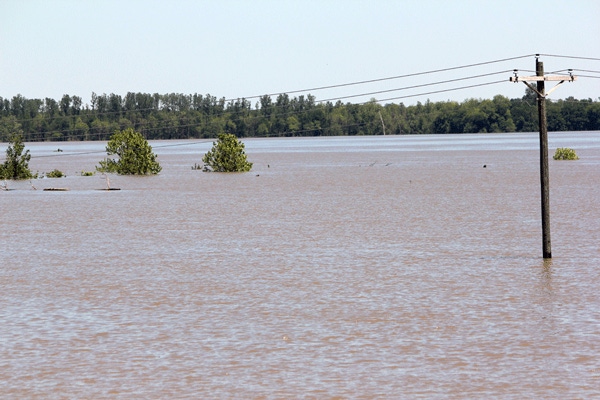
Levees must be rebuilt after flooding
• For farmers, as tough as their losses have been the last several weeks, it’s important that we stay focused on moving forward.• There are two national concerns we must begin thinking about: first, the need to begin rebuilding the levees and second, making sure the rivers stay open for navigation.
June 7, 2011

Seeing the raw video footage and photos of the unbelievable devastation from flooding in the South and Midwest has been heart wrenching. Our prayers go out to all of the people who’ve had their lives and livelihoods uprooted and washed away.
For farmers, as tough as their losses have been the last several weeks, it’s important that we stay focused on moving forward. There are two national concerns we must begin thinking about: first, the need to begin rebuilding the levees and second, making sure the rivers stay open for navigation.
After the floods of 1993 along the Missouri River, at least a few levees weren’t rebuilt immediately. If they had been, a lot of the same land would have been protected during the floods of 1995. Instead, extraordinary back-to-back economic hardships were placed on farm communities who then had little choice but to exit farming.
The type of flooding and devastation of the levees happening now is a one of those “once in every 40 to 50 years” type of event. But if we don’t rebuild the levees, we go from a one in every 40 or 50 years flood to a one in every one year event. Is it really smart use of our land to continually be flooded every year?
People are able to live and work along the river because of in-place “emergency” spillways, not “every year” spillways. Each time the river floods, if the levees are not replaced, these people are exposed. By not rebuilding the levees we are substantially changing the game on them. It’s important that we not let once-thriving agriculture communities turn into economic wastelands because of our failure to act.
It’s also important for farmers that we keep the rivers dredged and navigable for traffic to move up and down the channels. Navigation restrictions and the resulting back-up of farm products affect farmers throughout the Midwest and not just those in the directly impacted states.
There is no doubt about it; the effect of the flooding on farmers is being felt deeply across the South and Midwest. But with some patience and perseverance, we can look forward and see past the devastation and keep our productive agriculture lands viable into the future.
(Bob Young is chief economist for the American Farm Bureau Federation.)
You May Also Like



